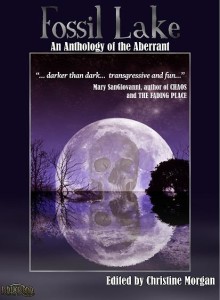 When the ebook revolution first began a few years ago, people rallied into two very distinct camps: one was the camp of the revolutionaries who pomoted the ebook-only route and
When the ebook revolution first began a few years ago, people rallied into two very distinct camps: one was the camp of the revolutionaries who pomoted the ebook-only route and
proclaimed the death of traditional publishing and teased those who still believed in the ‘old ways’ of being dinosaurs.
The other was the traditionalist camp scoffing at the young upstarts and their wild west approach to books, promising that no good end could come to those who started down that dark and unproven path.
It was a pretty exciting (some might say nerve-wracking) time, and no one was sure which camp would ultimately win the war of words.
 The situation reminded me of the Reeses Peanut Butter Cup commercials arguing about chocolate vs peanut butter. And like the commercial, reality seems to have found a way to bring those two great approaches to book publishing together. It is no longer an either/or discussion.
The situation reminded me of the Reeses Peanut Butter Cup commercials arguing about chocolate vs peanut butter. And like the commercial, reality seems to have found a way to bring those two great approaches to book publishing together. It is no longer an either/or discussion.
The most recent evidence suggests that the market is stabilizing. Ebooks now make up a large part of the new landscape, particularly the US market, while traditional publishing has survived the coup and has stabilized. The good news is that more books are being sold through both mediums. As of today, neither ebooks nor traditionally published physical copies appear to be heading the way of the dodo any time soon.
That’s great news for writers.
But the world has definitely shifted and writers need to approach this new world intelligently. The two markets are different, and different types of books tend to fit better in different slots, so writers need a plan.
As Brandon Sanderson, best-selling fantasy author recommends, it is a good idea to take shorter novels that can be produced more quickly (every 6 months max) and publish them as ebooks while taking longer novels like epic fantasy and publish those via traditional publishing, probably at the rate of one book per year. It makes so much sense that most of the authors I speak with are considering or actively pursuing the Reeses Approach, trying to establish a presence in both markets to leverage different strengths in each.
That is the approach I am taking.
Last year I entered the ebook world with an urban fantasy novella, Saving Face. This year I will complete and e-publish a trilogy set in the same urban fantasy setting. Those books are the beginning of my indie publishing market penetration, the chocolate in my Reeses.
At the same time, I still chose to secure the help of an agent, and am working with him to find a traditional publisher for my big fat epic fantasy novel, and another large YA fantasy novel. The signs are promising, so hopefully deals will be struck with both of those series this year. These are the beginning of my traditional publishing market penetration, the peanut butter side to the equation.
Some people ask, “Why do I need an agent now that we have ebooks?”
The answer is, “You may not.”
If you are convinced your only road to publishing is to directly e-publish your own novels as an indie author, or perhaps go with an ebook-only publisher like Musa Publishing, then an agent is not going to be able to add any value to you.
But in the traditionally published book world, agents still make a lot of sense. They not only have access to many publishers that authors just cannot reach, but they have established relationships with sub-agents to sell their authors’ works internationally. Those international sales can provide a huge advantage for authors, as the ebook revolution has not made such inroads in much of the rest of the world and physical copies still make up the majority of book sales there.
So when a writer decides to pursue traditional publishing for some of their works and they find an agent who extends an offer of representation, the next step is to establish the writer/agent relationship.
This generally results in a short legal document that both parties sign that lays out the agreement between them. It should include the percentage commission the agent expects to receive from the various types of media through which the books can be marketed. For example, a common commission rating is:
- US Rights: 15%
- UK or Foreign Rights: 20% inclusive of sub-agent’s commission. 15% if direct.
- Translation Rights: 20% inclusive of sub-agent’s commission. 15% if direct.
- RADIO 15%
- THEATRE 15% Subject to negotiation
- TELEVISION 15% Subject to negotiation
- NEWSPAPER & MAGAZINE ARTICLES, S,SHORT FICTION,ANTHOLOGY 15% when applicable (7.5% when contract vetting only)
- FILM 15% Subject to negotiation
The agreement should also include a termination clause, which allows for either party to terminate the agreement, usually with a month’s prior notice. Generally the agent still collects commission on those works which were sold through them, and will collect commission for any works sold within a set period of time after the termination of the contract if they were the ones who submitted those works to publishers (usually 90 day window).
Given that many authors now follow the hybrid Reeses Approach, it is a good idea to include a clause in any agreement signed that explicitly states that those books which the author directly e-publishes on their own instead of traditionally publishing through the agent and a publisher who will produce physical copies are exempt. But any ebook royalties on the electronic sales of those books published through traditional publishers and negotiated with the help of the agent are included in the commissions they would expect to receive.
The agreement should be short, simple, and clear. I am not a lawyer, but that is my opinion.
So yes, I am a believer in the Reeses Approach to book publishing. I did sign with an agent and I am anxious to sign that first deal with a traditional publisher that he is working to line up for me because I see value in getting hard copies into bookstores and gaining access to the international markets that would be difficult to penetrate as an indie-only writer. I am also loving the indie publishing route and am looking forward to completing the new trilogy, getting those books online, and participating in all of the exciting marketing opportunities for indie writers.

